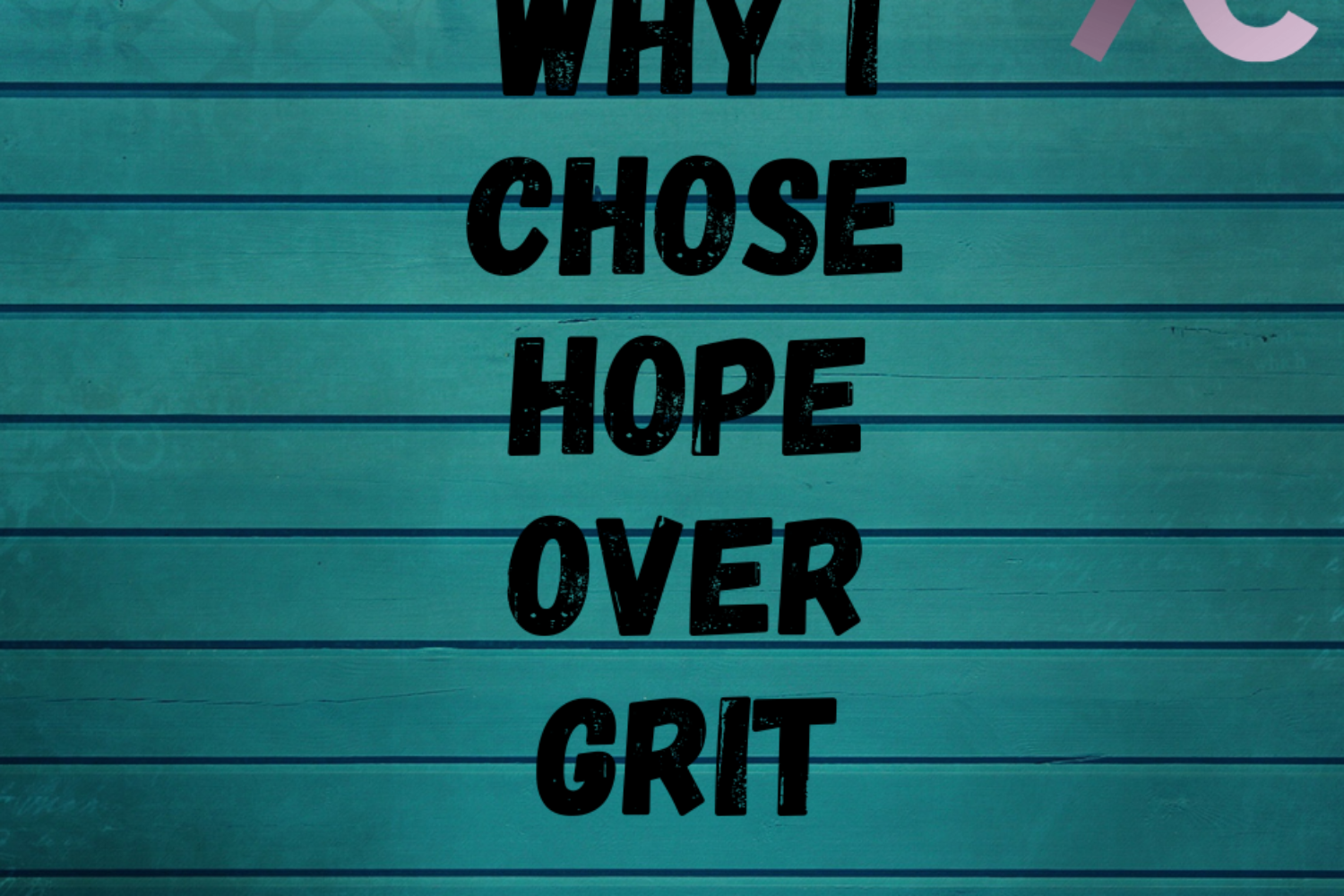Why I Chose Hope Over Grit
Dr. Ashley Cross
In 2014, I walked into a courtroom to support a 23-year-old getting ready to “voluntarily” terminate her rights as a mother. This decision was hard and painful. I will never forget the weep this young lady let out as she walked out of the courtroom. Why would she do such a thing? Why wouldn’t she work harder? Why didn’t she make better decisions? Why didn’t she want to be a mother? These are all questions you may initially ask yourself unless you understand…hope.
Years ago, I had studied Angela Duckworth’s GRIT. Duckworth defines Grit as passion and sustained persistence applied toward long-term achievement, with no particular concern for rewards or recognition. This theory was birthed while Duckworth was teaching 7th-grade math and realized IQ was not the only factor that separated high achieving students from those underperforming. She realized it was their ability to hold steadfast to a goal long enough to see it through. Duckworth spent years studying performance and developed what we know today as the Grit Theory. You may have even read her book Grit: The Power of Passion and Perseverance.
After learning more about this theory, I loved it. This was the answer to my questions… Grit. Grit is what separates high achieving people from underachieving people. It is our passion for life and our ability to “suck it up and keep trying.”
So that was it. I thought the answer was Grit. I thought the answer was passion and persistence, hard work, and work ethic. I thought the solution was to suck it up and work harder. I thought the answer was to make better decisions, and life will be better.
In The Body Keeps Score, Bessel Van Der Kolk, M.D., references a study based on Medicaid data in thirteen states, which “found that 12 .4 % of children in the foster care received antipsychotics, compared with 1.4 % of Medicaid-eligible children in general. These medications make children more manageable and less aggressive. Still, they also interfere with motivation, play, and curiosity, which are indispensable for maturing into a well-functioning and contributing member of society.”
Throughout my several years of working with children in foster care, there were not many that I worked with that were not on some type of medication and a diagnosis for PTSD and depression. This is not just restricted to my personal experience. The Northwest Foster Care Alumni Study found that 54.4% of foster alumni suffered mental health problems such as depression, social issues, anxiety, and post-traumatic stress disorder (PTSD). Moreover, 25% experienced PTSD and 20% major depression. Green et al. (2015) reported the following levels of mental health symptomatology among Midwest evaluation study participants: 33% suffered social anxiety, 25% experienced depression, and 60% sustained PTSD, with 14.5% taking psychotropic medications. PTSD is one of the most frequently diagnosed mental health challenges found in foster adolescents (Geenen et al., 2015; Salazar et al., 2013). Additionally, adolescents involved in foster care are diagnosed and treated for attention- deficit hyperactivity disorder (ADHD) at substantially higher rates than their peers (Klein et al., 2014).
So, the more research I did and the deeper I dug into Grit; I realize that something was missing. I thought to myself that something has to precede Grit, something has to come before hard work and persistence, and I found that to be hope. C.R. Snyder’s Hope Theory was tested on several vulnerable populations who had experienced different levels of trauma. Unlike Grit, the Hope Theory has been examined in people with experiences such as Alzheimer’s disease, depression, childhood and family trauma, suicidal ideation, sickle cell anemia, arthritis, cancer, attention-deficit-hyperactivity disorder, and addiction.
So, this is why I chose hope over Grit because Grit cannot be exerted without hope. People cannot merely pull themselves out of a pit without hope. Hard work is a character strength that all people should possess; however, hard work rides the back of hope, not the other way around.
So, remember Grit is not the answer to trauma; hope is.

